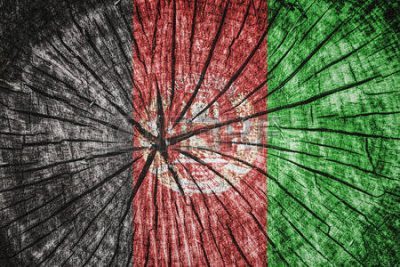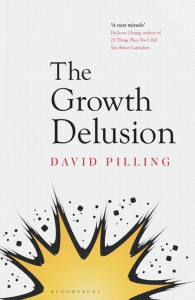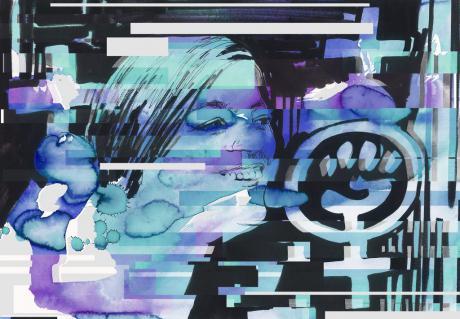Stuart Jeanne Bramhall's Blog: The Most Revolutionary Act , page 1112
January 30, 2018
Geopolitical Rivalries and Afghanistan’s Open-Ended War. China Extends its Influence to the Detriment of America
China seems to be the main winner in post-US occupation Afghanistan having secured lucrative deals to exploit natural resources.
Shifting Geopolitical Reality in Afghanistan: Threat to US Hegemony? Part II
By Fraidoon Amel
Global Research, January 29, 2018

Violent geopolitical rivalries between imperialist and hegemonist powers over Afghanistan’s natural resources, trade and transit routes, and geostrategic location have dramatically intensified. Despite sixteen years of heavy-handed US presence to establish its hegemony in Afghanistan and beyond, influence of regional powers like Russia, China, Iran, Pakistan, and India is growing.
The Perpetual War
Sixteen years into the longest war in its history, the US is aggressively flexing its muscles to assert and maintain its hegemony in Afghanistan and the region. This new development, however, does not stem from Donald Trump’s so-called Afghan strategy. The aggressive posture on the part of the US is partially a reaction to its humiliating defeat in Syria – and one should add Iraq – at the hands of Russia and Iran (with China…
View original post 4,586 more words
January 29, 2018
Book review: The Growth Delusion, by David Pilling
“If your country’s economy is growing solely because the rich are getting richer and you are working harder and harder just to maintain your living standard, then you are entitled to ask what, precisely, is all this growth for?”
 A few years ago books that were sceptical of economic growth were written by environmentalists or maverick economists, and issued by specialist presses and academic publishers. The Growth Delusion shows how things have shifted. It’s written by David Pilling, Africa editor for the Financial Times. And it’s published by Bloomsbury – the home of Harry Potter. That’s got to make this the most mainstream postgrowth book yet.
A few years ago books that were sceptical of economic growth were written by environmentalists or maverick economists, and issued by specialist presses and academic publishers. The Growth Delusion shows how things have shifted. It’s written by David Pilling, Africa editor for the Financial Times. And it’s published by Bloomsbury – the home of Harry Potter. That’s got to make this the most mainstream postgrowth book yet.
There are good reasons why growth scepticism is on the rise. When the economy was ticking along nicely, there was no need to ask questions about it. And then when the economy tanked, everyone was talking about the crisis. It’s only now, ten years on, that we can look at growth and think critically about it. We desperately wanted growth after the recession. But has it done us any good?
As Pilling says in the introduction: “If your country’s economy is growing solely…
View original post 624 more words
Glass Produced in Ancient Sub Saharan Africa Long Before European Colonization
Written by Samira Sadeque
A recent archeological dig in modern day southwest Nigeria has found that glass was locally produced in Sub-Saharan Africa as early as 1000 years ago—long before trading relations with Europe began in the 15th century.
Glass beads, a symbol of prosperity, power and prestige in many African cultures, have long been thought to be made from glass imported from Europe. But a recent archaeological discovery of glass in Igbo Olokun, Ile-Ife in southwestern Nigeria, is forcing a rethink of that long-held belief. . .
via Glass was being produced in ancient Sub Saharan Africa long before early European imports — Quartz
How the War on Drugs Increases Drug Use and Destroys Communities
The House I Live In: The War on Drugs in the United States
Directed by Eugene Jerecki (2012)
Film Review
Last night Maori TV showed The House I Live In, which maintains the US War on Drugs is far more destructive than drugs themselves. Instead of reducing illicit drug use, the War on Drugs has vastly increased it – in part because it has shifted funding from treatment to enforcement.
The documentary traces how drugs enforcement has always been targeted, not against drugs, but against ethnic minorities (and removing them from the workforce). In the white community, drug addiction has always been viewed as a public health problem. Yet in the 19th century, the first opium laws were targeted against Chinese workers imported to work on the railroads; in the early 1900s cocaine enforcement was targeted against African Americans migrating from the South to northern cities; and in the 1920s and 1930s, the first marijuana laws were directed against Hispanics coming to the US seeking work.
Although the War on Drugs was initially launched to win votes for politicians (by promising to increase incarceration rates), there seem to be other factors that are perpetuating it. According to the filmmakers, the main three are mandatory minimum sentences (which force judges to hand out 20-30 year sentences for relatively minor nonviolent drug offenses, incentives that reward cops to pursue easy drug busts* rather than more dangerous crimes like murder and rape, and the job-creating potential of the profitable prison-industrial complex.
For me the most surprising part of the film concerned the increase in amphetamine-related arrests (occurring mainly in white men) since the 2008 global economic crash. After losing their jobs, many blue collar whites have turned to amphetamine manufacture and distribution to support their families. Thus a growing number of poor whites are facing the ridiculously long mandatory sentences African and Hispanic communities have been struggling with since the 1990s.
*These incentives also cause police to focus enforcement efforts on the ghetto. This results in much higher arrest rates from African Americans, even though they use illicit drugs at roughly the same rates as whites and other ethnicities.
January 28, 2018
‘We Need to Talk about How We Learn to Accept Our Own Oppression’
We need to talk about ‘socialisation’, and how we are instructed, in subtle and not-so-subtle ways, to accept our own oppression, and to not ‘make a fuss’.
Human Wrongs Watch
By Nina Power*
27 January 2018 (openDemocracy)* — The more women stand up against bullies and harassment in our personal lives, the less we will tolerate them in our political lives too.
Credit: Ammar Abu Bakr/TNI State of Power report 2018.
It should have been impossible for Donald Trump to become president of the United States. Even those Republicans who thought he might have defended their political interests surely saw what a terrible idea it would be to have him in charge of anything, be it his Twitter account or the nuclear codes. Why did they not organise in secret and make it impossible for him to win the nomination, let alone the election?
View original post 1,115 more words
Trump Denies Climate Change But Might Sign Paris Accord
 US President Donald Trump says he is skeptical about climate change, but says he might sign the United States back up to the Paris climate agreement.
US President Donald Trump says he is skeptical about climate change, but says he might sign the United States back up to the Paris climate agreement.
“There is a cooling, and there’s a heating. I mean, look, it used to not be climate change, it used to be global warming. That wasn’t working too well because it was getting too cold all over the place,” Trump said in comments published on Sunday.
Although global warming and climate change are often used interchangeably, they are indeed slightly different. Global warming refers only to the Earth’s increasing surface temperature, whereas climate change is a broader term which includes the other effects of carbon pollution, such as changing weather patterns.
So far, several studies have been conducted to gauge the consensus reached among climate scientists on human-caused global warming, with 97 percent emerging as an accurate estimate of the proportion who agree with it.
“The ice caps were going to melt, they were going to be gone by now, but now they’re setting records. They’re at a record level,” Trump said.
His comments were similar to those often made by climate change skeptics that global warming has stopped, or even reversed, in recent years.
But recent figures provided by the Met Office, NASA and the US National Oceanic and Atmospheric Administration indicated that 2017 was one of the hottest years ever recorded.
“Forget what the skeptics will tell you, climate change is real and is happening right now,” said Professor Martin Siegert, a climate change expert at Imperial College London, in response to the figures.
Meanwhile, Trump said if there is a good agreement, he would sign the US back up to the Paris climate accord he withdrew from in June last year.
“The Paris accord, for us, would have been a disaster,” he told Britain’s ITV channel. “If they made a good deal … there’s always a chance we’d get back.”
Trump had vowed during the election campaign to “cancel” the landmark 2015 global agreement within 100 days of becoming president on January 20.
The agreement entered into force on November 4, 2016 and has been signed by 197 countries, of which 174 have now formally ratified it.
The climate deal seeks to halt average global warming at no more than 2 degrees Celsius (3.6 degrees Fahrenheit) above pre-industrial temperatures by 2050. It also sets out a goal of reaching a limit of 1.5 degrees Celsius, if possible.
The deal is to take effect in 2020.
via Trump denies climate change, but says he may sign Paris accord
HOW BIG FOOD & EDUCATION MADE US BELIEVE ‘MILK DOES THE BODY GOOD’ WHEN IT REALLY DOESN’T
This whole dairy façade began upon the premise that we need calcium, which we do, and that we can only get it through dairy products, which is false. There are a number of vegetables that contain even more calcium than milk, including broccoli, kale, cabbage, and watercress, along with a variety of nuts and seeds.


Oh, good old dairy! I’m sure you remember being a kid and having your mother tell you, Drink your milk! You need it to grow and be strong! Or perhaps your mom was ahead of the curve and saw through the mass marketing campaign designed to convince us that we require milk to live a healthy life.
Aside from the obvious reasons why we don’t need cow’s milk — no other animal drinks the milk from another species; we no longer need milk once weaned from our own mother’s; and cow’s milk is, well, meant for baby cows to grow into giant cows — we most certainly do not need dairy.
Got Milk?
This whole dairy façade began upon the premise that we need calcium, which we do, and that we can only get it through dairy products, which is false. There are a number of vegetables that contain even more calcium than milk, including broccoli, kale…
View original post 2,189 more words
January 27, 2018
How The Microbiome may Destroy the Ego, Vaccine Policy, and Patriarchy
If 99% of what it means to be human is microbiome-based, and if the mother contributes most, if not all, of the original starting material, or at least the baseline and trajectory of future changes in the inner terrain, then her contribution becomes vastly more important than that of the father.
by Sayer Ji, Founder at GreenMedInfo
The relatively recent discovery of the Microbiome is not only completely redefining what it means to be human, to have a body, to live on this earth, but is overturning belief systems and institutions that have enjoyed global penetrance for centuries.
A paradigm shift has occurred, so immense in implication, that the entire frame of reference for our species’ self-definition, as well as how we relate fundamentally to concepts like “germs,” have been transformed beyond recognition. This shift is underway and yet, despite popular interest in our gut ecology, the true implications remain unacknowledged.
It started with the discovery of the microbiome, a deceptively diminutive term, referring to an unfathomably complex array of microscopic microorganisms together weighing only 3-4 lbs. in the average human, represents a Copernican revolution when it comes to forming the new center, genetically and epigenetically, of what it…
View original post 2,366 more words
Study Correlates Heavy Smartphone Use in Teens with Greater Unhappiness
This study, gathering data from over one million 8th-, 10th-, and 12th-graders, showed teens who spend more time on social media, gaming, texting and video-chatting on their phones aren’t as happy as those who played sports, went outside and interacted with real human beings.
A Journal of People report
Too much Smartphone use makes teens unhappy, finds a new research from San Diego State University. Teens glued to their Smartphones and other devices are unhappier than those spending less time on digital media, the research finds.
The study gathered data from over one million 8th-, 10th-, and 12th-graders in the U.S. showing teens who spent more time on social media, gaming, texting and video-chatting on their phones were not as happy as those who played sports, went outside and interacted with real human beings.
View original post 1,897 more words
J Edgar Hoover: A Textbook Case in Corruption
This is an intriguing documentary about J Edgar Hoover, founding director of the FBI. It’s largely based on an official federal investigation that occurred shortly after Hoover’s death in 1972 and Anthony Summer’s 2013 book Official and Confidential: the Secret Life of J Edgar Hoover.
The film explores Hoover’s long track record of both low level and high level corruption. The former involved his routine use of FBI employees to drive him to private functions and to remodel and redecorate his home, as well as the routine use of taxpayer funds to pay for private vacations. The high level corruption involved his close association with Mob figures to fuel his (illegal) offtrack betting habit.
Hoover was notorious for his refusal to investigate or arrest organized crime bosses during his tenure of office. He consistently maintained the US had no national organized crime problem. This was the major cause of his three year battle with John and Bobby Kennedy – which ended in the JFK assassination.
The documentary also reveals how Hoover forced Kennedy to accept Lyndon Johnson as his running mate, by threatening to release surveillance tapes the FBI had made of JFK’s extramarital affairs.
Hoover undertook this type of illegal surveillance on most, if not, all major Washington political figures. He also routinely made it known to lawmakers when he had compromising files on them. These files made him virtually untouchable despite fairly wide knowledge of his own corrupt activities.
Hoover, in turn, was held in check by senior Mob figures who had photos of Hoover engaged in sexual relations with his lover and lifetime partner Clyde Tolson. Officially Hoover condemned homosexuality as a sexual perversion and banned gays from serving as FBI agents.
The Most Revolutionary Act
- Stuart Jeanne Bramhall's profile
- 11 followers












